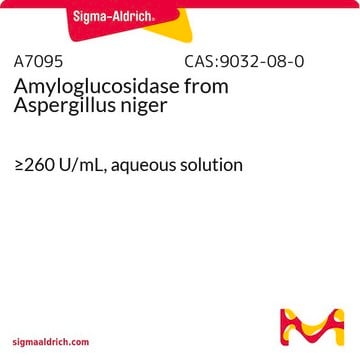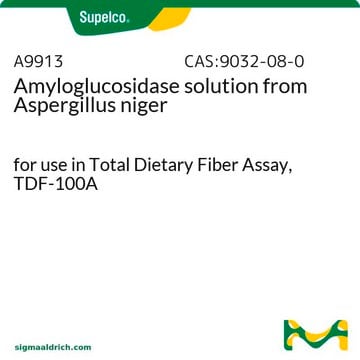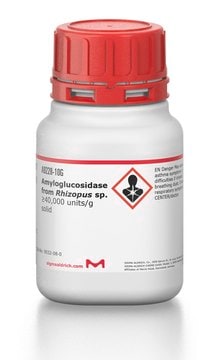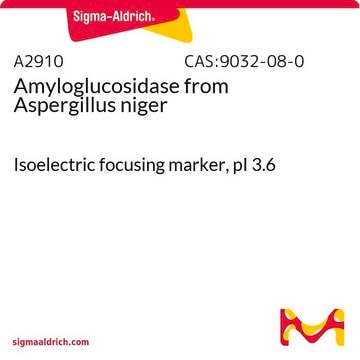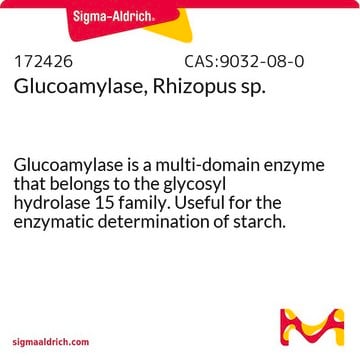A1602
Amyloglucosidase from Aspergillus niger
ammonium sulfate suspension, ≥40 units/mg protein
Synonym(s):
1,4-α-D-Glucan glucohydrolase, Exo-1,4-α-glucosidase, Glucoamylase
About This Item
Recommended Products
form
ammonium sulfate suspension
Quality Level
specific activity
≥40 units/mg protein
shipped in
wet ice
storage temp.
2-8°C
Looking for similar products? Visit Product Comparison Guide
General description
Application
Biochem/physiol Actions
Unit Definition
Physical form
Other Notes
Storage Class Code
12 - Non Combustible Liquids
WGK
WGK 2
Flash Point(F)
Not applicable
Flash Point(C)
Not applicable
Personal Protective Equipment
Regulatory Listings
Regulatory Listings are mainly provided for chemical products. Only limited information can be provided here for non-chemical products. No entry means none of the components are listed. It is the user’s obligation to ensure the safe and legal use of the product.
JAN Code
A1602-BULK-N:
A1602-BULK:
A1602-VAR:
A1602-25MG:
A1602-100MG:
Certificates of Analysis (COA)
Search for Certificates of Analysis (COA) by entering the products Lot/Batch Number. Lot and Batch Numbers can be found on a product’s label following the words ‘Lot’ or ‘Batch’.
Already Own This Product?
Find documentation for the products that you have recently purchased in the Document Library.
Customers Also Viewed
Articles
Instructions for working with enzymes supplied as ammonium sulfate suspensions
Protocols
This procedure may be used for the determination of Amyloglucosidase activity using starch as the substrate.
Our team of scientists has experience in all areas of research including Life Science, Material Science, Chemical Synthesis, Chromatography, Analytical and many others.
Contact Technical Service